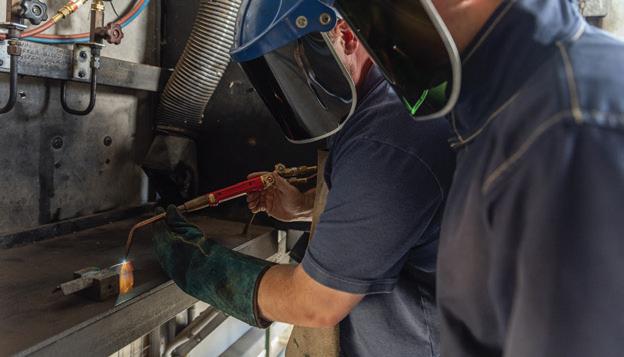...our Difference WHAT MAKES OUR
“Catholic schools are communities in
Our schools integrate spirituality into
SCHOOLS CATHOLIC?
themselves and we see generations
everyday life, in subtle ways across all
of families come to our schools and
areas of the curriculum, on the sporting
Catholic identity is at the heart of Catholic
cherish being part of it,” said Louise
fields, in the social justice programs, school
education. It is perhaps our biggest
Vella-Cox, Director of Catholic Identity
liturgies and prayer and meditation time.
point of difference as a school system
and Indigenous Education Services,
and the reason many parents choose a
Townsville Catholic Education.
Catholic education for their children.
These school communities are known to
with their body, mind and soul,
At their very core, Catholic schools are
actively support the broader community,
which is especially important as lives
places where the values that Jesus taught
scaffolding within their students a
become busier and faster-paced.
– love, hope, compassion, reconciliation,
lifelong sense of social responsibility
inclusion, justice, a promotion of life in
and engagement to support those in
abundance, liberation and community
need. Staff are focused on providing
– are known and practiced.
the best opportunities based on
However, it is not only through structured Religious Education lessons that our
each student to ensure that they can contribute positively in society.
student body experiences the benefits of
“Catholic identity, social justice, inclusion
a faith-based education. Catholic identity
and excellence are at the core of everything
is woven into the student experience
we do. Respect is important to us and
at every opportunity through the broad
we encourage our students to make
themes of community and spirituality.
positive contributions to society and be their best selves every day,” Louise said.
12
Meditation allows students to escape pressures of everyday life and connect
“Our Catholic identity is nurtured through prayer, liturgy, sacred spaces and sacrament striving to be spiritual, respectful and sharing places,” said Louise. “Students in our Catholic schools don’t just learn about contemplative prayer, they experience it and do it regularly so that it becomes almost second nature to them. Through regularly praying this way, students are given skills to live spiritually in a world of constant change and motion.”











